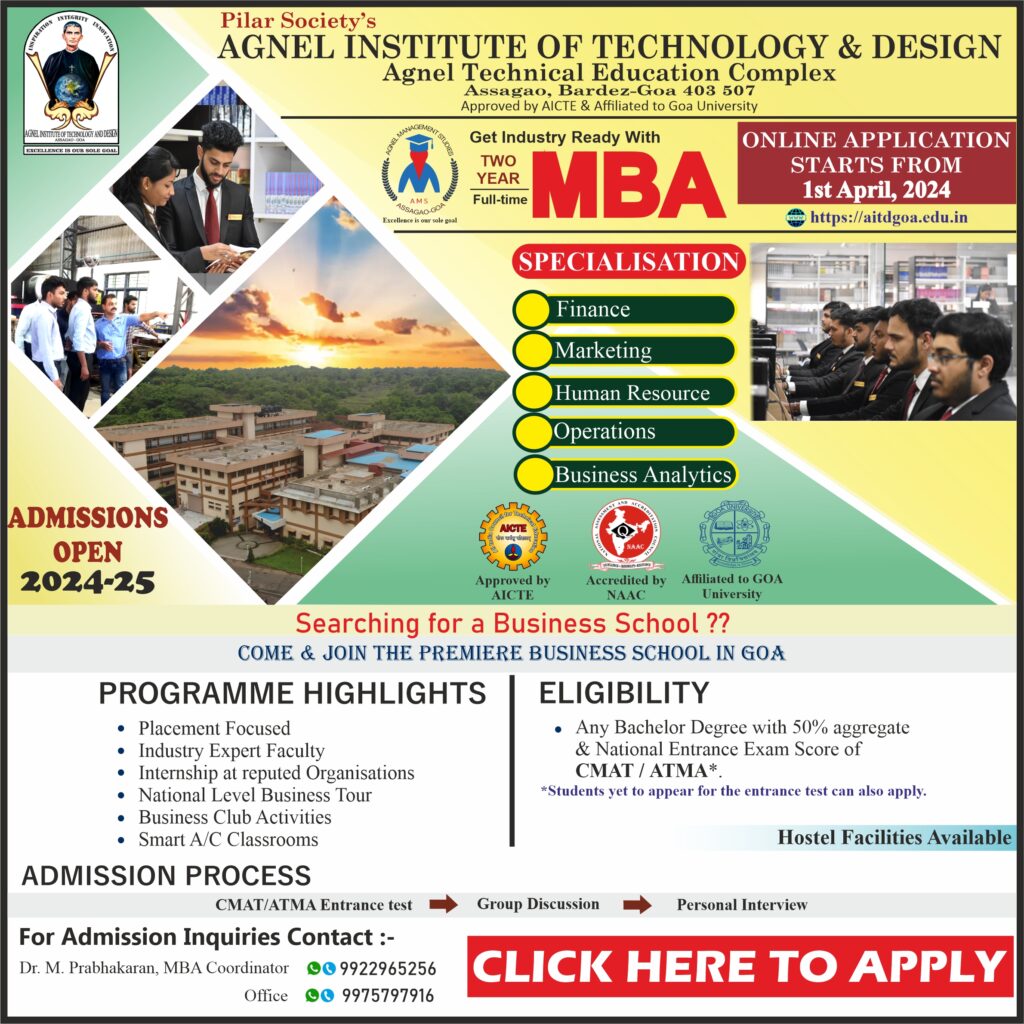
B.E in Electronics and Communications Engineering
Program Overview
Bachelor of Engineering [BE] (Electronics and Communications Engineering) is a four year course. This programme involves designing, developing, testing and maintaining of electronic equipment. Electronics and Communication engineers also deal with the production of communication systems.
The program furnishes adequate knowledge to the students in Mathematics, Physics, Electronics and Communication systems to supervise and manufacture electronic equipment. This programme allows students to delve deep into the principles of electronic devices.
Curriculum (RC 19-20 Scheme)
- Mathematics – I
- Chemistry / Physics
- Basic Electrical & Electronics Engineering
- Basics of Mechanical Engineering
- Physics/Chemistry Laboratory
- Electrical & Electronics Laboratory
- Workshop-I
- Environmental Science*
*To become eligible to answer semester I examinations it is mandatory to complete the requirements of audit course.
- Mathematics – II
- Chemistry / Physics
- Computer Programming
- Introduction to Civil Engineering
- Physics/Chemistry Laboratory
- Programming Laboratory
- Engineering Graphics
- Workshop-II
- Circuit Analysis and Synthesis
- Electronic Devices and Circuits
- Electromagnetic Field & Wave Theory
- Electronic Devices and Circuits Lab
- Digital System Design Lab
- Technical Communication
- Mathematics-I and II(Bridge Course*)
- Technical Communication
- Signals and Systems
- Microprocessors and Interfacing
- Linear Integrated Circuits
- Transmission Lines and Antennas
- Statistical Communication Theory
- Microprocessors and Interfacing Lab
- Linear Integrated Circuits Lab
- Engineering Economics and Management
PROGRAM EDUCATIONAL OBJECTIVES (PEOs)
- PEO 1 To equip students to acquire knowledgeable degree with skills to comprehend, analyse, design and create innovative solutions for real life problems.
- PEO 2 To enhance the communication skills, inculcate ethical attitude and team spirit to become successful leaders with a comprehensive approach.
- PEO 3 To inspire students towards active lifelong learning through creation of self-motivating and self-learning environment.
- PEO 4 To develop research attitude leading to entrepreneurial ideas that are technically sound, economically feasible and socially acceptable and adaptable.
PROGRAM OUTCOMES (POs)
- PO 1 Engineering knowledge: Apply the knowledge of mathematics, science, engineering fundamentals, and an engineering specialization to the solution of complex engineering problems.
- PO 2 Problem analysis: Identify, formulate, review research literature, and analyze complex engineering problems reaching substantiated conclusions using first principles of mathematics, natural sciences, and engineering sciences.
- PO 3 Design/development of solutions: Design solutions for complex engineering problems and design system components or processes that meet the specified needs with appropriate consideration for the public health and safety, and the cultural, societal, and environmental considerations.
- PO 4 ; Conduct investigations of complex problems: Use research-based knowledge and research methods including design of experiments, analysis and interpretation of data, and synthesis of the information to provide valid conclusions.
- PO 5 Modern tool usage: Create, select, and apply appropriate techniques, resources, and modern engineering and IT tools including prediction and modelling to complex engineering activities with an understanding of the limitations.
- PO 6 The engineer and society: Apply reasoning informed by the contextual knowledge to assess societal, health, safety, legal and cultural issues and the consequent responsibilities relevant to the professional engineering practice.
- PO 7 Environment and sustainability: Understand the impact of the professional engineering solutions in societal and environmental contexts, and demonstrate the knowledge of, and need for sustainable development.
- PO 8 Ethics: Apply ethical principles and commit to professional ethics and responsibilities and norms of the engineering practice.
- PO 9 Individual and team work: Function effectively as an individual, and as a member or leader in diverse teams, and in multidisciplinary settings.
- PO 10 Communication: Communicate effectively on complex engineering activities with the engineering community and with society at large, such as, being able to comprehend and write effective reports and design documentation, make effective presentations, and give and receive clear instructions.
- PO 11 Project management and finance: Demonstrate knowledge and understanding of the engineering and management principles and apply these to one’s own work, as a member and leader in a team, to manage projects and in multidisciplinary environments.
- PO 12 Life-long learning: Recognize the need for, and have the preparation and ability to engage in independent and life-long learning in the broadest context of technological change.
PROGRAM SPECIFIC OUTCOMES
- PSO 1: Apply basic knowledge related to Mathematics, Analog and Digital Circuits, Programming Concepts, Embedded Systems, Communication Systems, Automation and Signal Processing to solve Engineering/Societal problems
- PSO 2: Use Engineering & Mathematical tools to model, analyze, evaluate and prototype electronic experiments/projects either independently or in teams.
Career Opportunities
There are a plethora of Electronics and Communication Engineering jobs available for those who graduate in this field. A Graduate in Electronics and Communication Engineering would be equipped with fundamentals of Electronics and Communication as well as a strong mathematical aptitude. One would be able to solve the complex challenges and would be adequately prepared for a career in research, design, manufacture, and maintenance in the fields of consumer electronics, electronic media, bio-medical, automobile-control, communication, software, computer hardware, and other electronic fields.
Some of the job profiles offered are:
Career Roles
- Electronics Engineer
- Electronics Design & Development Engineer
- System Control Engineer
- Network Planning Engineer
Eligibility Criteria
The student should have completed 10 +2 education and appear for the Goa Entrance examination to be eligible for this course.
OR
The student should have completed a diploma in Engineering course and appear for Goa Entrance examination for Lateral Entry in degree courses.
Contact Us
- +91 9443399499
- [email protected]
- Electronics and Communications Engineering Department, Agnel Institute of Technology & Design, Assagao Goa
- Visit Department Website

